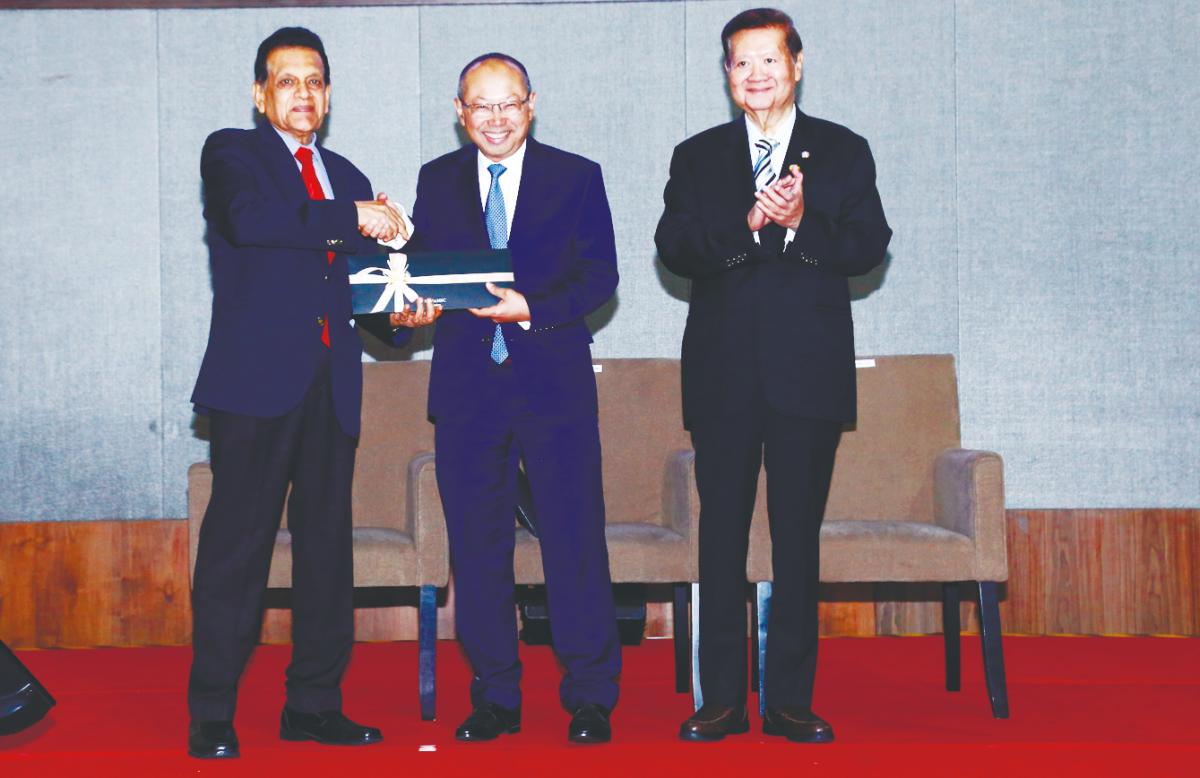KUALA LUMPUR: Chief financial officers must strive to be strategic operators in the current global climate, capable of guiding organisations through uncertainty and repositioning them for growth.
Economic Club of Kuala Lumpur advisory council chairman Tan Sri Abdul Wahid Omar said CFOs must lead in reimagining finance itself, adding that the days when the finance office was seen only as a “scorekeeper” had passed.
“Volatility in global markets underlines this need,“ Abdul Wahid, who is also the Asean Economic Club adviser, told delegates at the Asean CFO Sustainability Leadership Summit 2025 today.
According to the International Monetary Fund, global growth is forecast at 3% in 2025, well below the pre-Covid pandemic average of 3.8%.
Abdul Wahid said this uneven recovery demands sharper foresight and agility from the finance function. He also noted that technology is reshaping how this foresight is delivered.
According to McKinsey’s State of AI in 2025, companies that deploy artificial intelligence (AI) at scale are not only reporting cost savings but are also building competitive advantage by improving forecasting, stress testing and scenario planning.
Finance is among the top functions where AI adoption is accelerating, he said.
Further, Abdul Wahid said investor expectations are shifting. Gartner’s 2025 CFO Priorities survey highlights that finance leaders are now measured by their ability to deliver real-time insights, manage risk dynamically, and ensure capital is allocated to growth opportunities – not just report after the fact.
“For CFOs in Asean, this means moving beyond spreadsheets to digital dashboards, predictive analytics, and integrated reporting. Those who succeed will not only improve efficiency but also elevate their seat at the strategy table,“ Abdul Wahid, who is a former chairman of Bursa Malaysia Bhd, said.
He highlighted that CFOs are expected to be stewards of their companies’ environmental, social and governance agenda. “This is not a matter of reputation, but of access to capital, investor confidence, and long-term competitiveness.”
Abdul Wahid said the Climate Bonds Initiative, global green, social, sustainability and sustainability-linked (GSS+) bonds and loans reached US$1.05 trillion (RM4.4 trillion) in 2024, with cumulative issuance now exceeding US$6.9 trillion.
“Asia accounted for a rising share, as corporates and governments alike sought to finance credible transition plans,” he added.
Abdul Wahid noted that regulators in the region are raising the bar, with the Securities Commission Malaysia phasing in the National Sustainability Reporting Framework, which is aligned with the International Sustainability Standards Board (ISSB).
Group 1 listed issuers must begin climate-related disclosures from the financial year 2025, with broader ISSB-aligned reporting phased in by 2027.
“The message is clear: companies that fall behind on sustainability will find it harder to raise capital, insure their assets or remain in global supply chains,” Abdul Wahid said.
According to a forecast cited in the 2020 IISD report, assets under ESG mandate could reach around US$160 trillion by 2036, implying near‑complete ESG integration in global fund management.
“CFOs must therefore treat sustainability not as a separate report but as an integral part of strategy and capital allocation.
“Linking investment decisions to climate goals, embedding ESG data controls with the same rigour as financial data, and signalling credible transition plans are now critical to securing investor trust,“ said Abdul Wahid.
The Asean CFO Sustainability Leadership Summit 2025 saw the presence of over 150 senior finance leaders, industry experts, and policymakers to deliberate on the evolving role of CFOs in shaping the future of business.
Jointly organised by the KSI Strategic Institute for Asia Pacific, delegates engaged in high-level discussions on resilience, trust, and sustainable business value in today’s challenging economic environment.
KSI Strategic Institute president for Asia Pacific and chairman of the Asean Economic Club Tan Sri Michael Yeoh said the summit has reaffirmed that the role of the CFO has expanded beyond managing numbers.
“Today’s CFOs are expected to be custodians of trust, champions of sustainability and catalysts for innovation. They must integrate ESG into corporate strategy while ensuring governance and resilience remain uncompromised,” he said.
Moving on, Abdul Wahid said that three priorities stand out for CFOs across Asean, namely reimagining finance with data, technology, and foresight to navigate volatility.
Secondly, embedding sustainability into strategy and capital allocation, in line with global investor expectations and regional regulatory reforms and thirdly, strengthening governance as the foundation of trust, without which no amount of transformation can endure.
“These responsibilities are not abstract. They are practical levers to ensure resilience in uncertain times, to secure continued access to capital, and to maintain the confidence of investors, regulators, employees and communities.
“Asean, despite global headwinds, remains one of the world’s most dynamic regions. With growth projected at 4.7% this year according to the Asian Development Bank, our corporations are well-placed to lead in sustainability and innovation – but only if finance leaders rise to the challenge,“ Abdul Wahid said.









